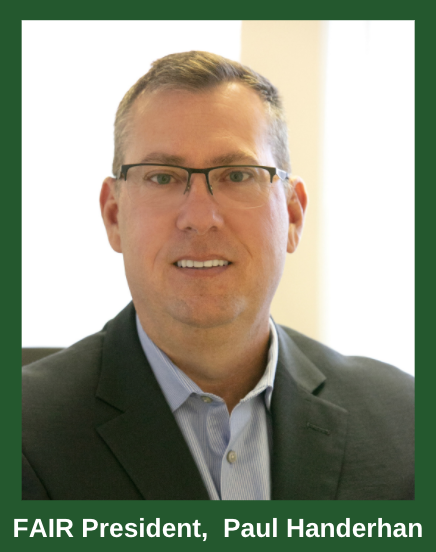
News Provided by: Florida Record
Article by: Michael Carroll
February 26, 2021
Restrictions on assignment-of-benefits (AOB) property insurance claims signed into law in 2019 have failed to control lawsuits blamed for pushing up insurance premium costs in Florida, according to a nonprofit insurance consumers group.
The AOB reforms contained in House Bill 7065 attempted to restrict third parties such as contractors from injecting themselves into the claims process after homes sustain weather-related damages and needed emergency repairs, Paul Handerhan, the president of the Fort Lauderdale-based Federal Association of Insurance Reform, told the Florida Record.
AOB lawsuits decreased after Gov. Ron DeSantis signed the bill, but the reforms didn’t deter the behavior of those involved in filing questionable or inflated claims, Handerhan said.
“Unfortunately, those third parties didn’t get out of the business,” he said, adding that first-party lawsuits filed in the homeowner’s name have skyrocketed since the reforms took effect.
The filing of such lawsuits can place additional financial burdens on property insurers in the state, many of which have recently won double-digit rate hikes to deal with the effects of multiple hurricanes and severe weather in recent years, according to Handerhan.
Over the years, third parties seeking to inspect residents’ homes have offered gift cards and promises of speedy repairs, but often they are not authorized to interpret the language of property insurance contracts, possibly causing homeowners difficulties when it comes time to renew contracts, he said.
“Rates have not caught up with expenses,” Handerhan said, indicating that some companies will be leaving the market and others will be restricting the business they do. “There is more pain on the rate-increase side coming for consumers.”
Key cost drivers affecting the industry in recent years have been the frequency of catastrophic storms, other more frequent weather events such as hail storms and high winds, and rising reinsurance rates for Florida-based carriers, he said.
“What reinsurers and primary insurers are trying to figure out is if it is an anomaly or if it is about climate change, and is this the new normal?” Handerhan said.
Some potential solutions that the association favors include increasing the capacity of the Florida Hurricane Catastrophe Fund to reduce reinsurance costs to many carriers and reduce the pressure on rates, he said.
And the state needs to take a more proactive stance against outright insurance fraud by creating a dedicated homeowners fraud unit, similar to what is done in Medicaid claims, according to Handerhan. That would help to deter bad actors, he said, as would a greater emphasis on administrative fines and cease-and-desist for those who violate insurance statutes.
